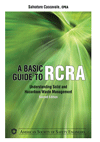 Tobacco use is the leading preventable cause of premature death in the United States and is responsible for approximately 443,000 deaths each year. Of those deaths, 49,400 are a result of secondhand smoke exposure. Here are some more facts and figures about tobacco use and reasons why continued efforts to prevent it are needed:
Tobacco use is the leading preventable cause of premature death in the United States and is responsible for approximately 443,000 deaths each year. Of those deaths, 49,400 are a result of secondhand smoke exposure. Here are some more facts and figures about tobacco use and reasons why continued efforts to prevent it are needed:
?An estimated 19% of all adults in the U.S. smoke cigarettes.
?According to the CDC, in 2011, the prevalence of cigarette smoking was highest among non-Hispanic American Indian/Alaska Native (31.5%), followed by non-Hispanic multiple race (27.4%), non-Hispanic white (20.6%), non-Hispanic black (19.4%), Hispanic (12.9%) and non-Hispanic Asian (9.9%).
?Every day, approximately 1,000 people under age 18 and 1,800 people over the age of 18 begin smoking on a daily basis.
?Nearly 70% of adults who smoke say they want to quit.
?In 2012, approximately 53 million American adults were former cigarette smokers.
?Tobacco smoke contains more than 7,000 chemicals including tar, nitrogen oxide, carbon monoxide, DDT, arsenic, cyanide, and nicotine. Nearly 70 of these chemicals are cancer-causing agents.
?Cigarette smoking is estimated to be responsible for $193 billion in annual health-related economic losses each year in the U.S. This is made up of $96 billion in direct medical costs and approximately $97 billion in lost productivity.
?On average, people who smoke die 10 years earlier than people who do not smoke.
Smoking causes approximately:
?80-90% of all lung cancer deaths.
?85-90% of all deaths from chronic obstructive pulmonary disease.
Compared with nonsmokers, smokers have:
?Two to four times higher risk of coronary heart disease and stroke.
?23 times higher risk of developing lung cancer (men only).
?13 times higher risk of developing lung cancer (women only).
?12-13 times higher risk of dying from COPD.
If you or someone you know is trying to quit smoking or other tobacco use, visit lungchicago.org/quit-smoking for cessation resources and information
Source: Respiratory Health, visit www.lungchicago.org.




